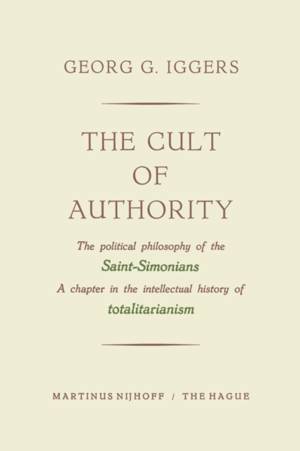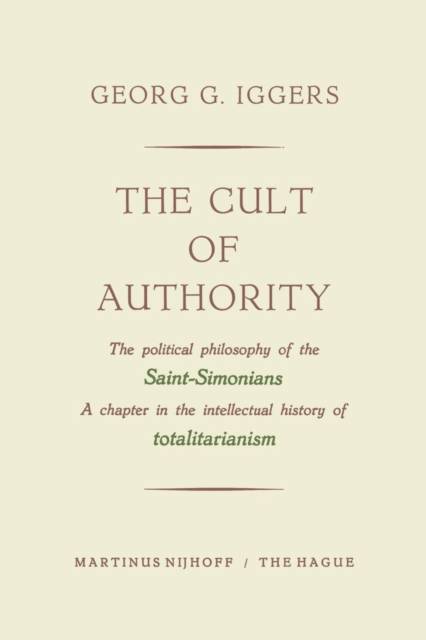
- Afhalen na 1 uur in een winkel met voorraad
- Gratis thuislevering in België vanaf € 30
- Ruim aanbod met 7 miljoen producten
- Afhalen na 1 uur in een winkel met voorraad
- Gratis thuislevering in België vanaf € 30
- Ruim aanbod met 7 miljoen producten
Zoeken
The Cult of Authority
The Political Philosophy of the Saint-Simonians a Chapter in the Intellectual History of Totalitarianism
Georg G Iggers
Paperback | Engels
€ 83,95
+ 167 punten
Omschrijving
The present book constitutes an attempt to contribute to the study of the intellectual roots of modem totalitarianism. It is not intended to duplicate the several works on the history of the Saint-Simonian movement, including the excellent study by Charlety, or the large periodical literature on various phases of Saint-Simonian economic, literary, aesthetic, feminist, and pacifist thought. Rather it analyzes systematically for the first time the political ideas of the Saint-Simonians and their social and cultural implications. In contrast to previous studies, this book utilizes extensively the periodical literature of the period 1829-1832 during which the political ideas of the movement underwent their greatest development. This study is an outgrowth of a doctoral dissertation written at the University of Chicago. Unlike the dissertation, this book attempts to study Saint-Simonian political ideas within the framework of the intellectual history of the early nineteenth century. I wish to give particular thanks to the members of my doctoral committee, Professors Louis Gottschalk, James L.
Specificaties
Betrokkenen
- Auteur(s):
- Uitgeverij:
Inhoud
- Aantal bladzijden:
- 210
- Taal:
- Engels
Eigenschappen
- Productcode (EAN):
- 9789401503624
- Verschijningsdatum:
- 1/01/1958
- Uitvoering:
- Paperback
- Formaat:
- Trade paperback (VS)
- Afmetingen:
- 156 mm x 234 mm
- Gewicht:
- 312 g

Alleen bij Standaard Boekhandel
+ 167 punten op je klantenkaart van Standaard Boekhandel
Beoordelingen
We publiceren alleen reviews die voldoen aan de voorwaarden voor reviews. Bekijk onze voorwaarden voor reviews.







